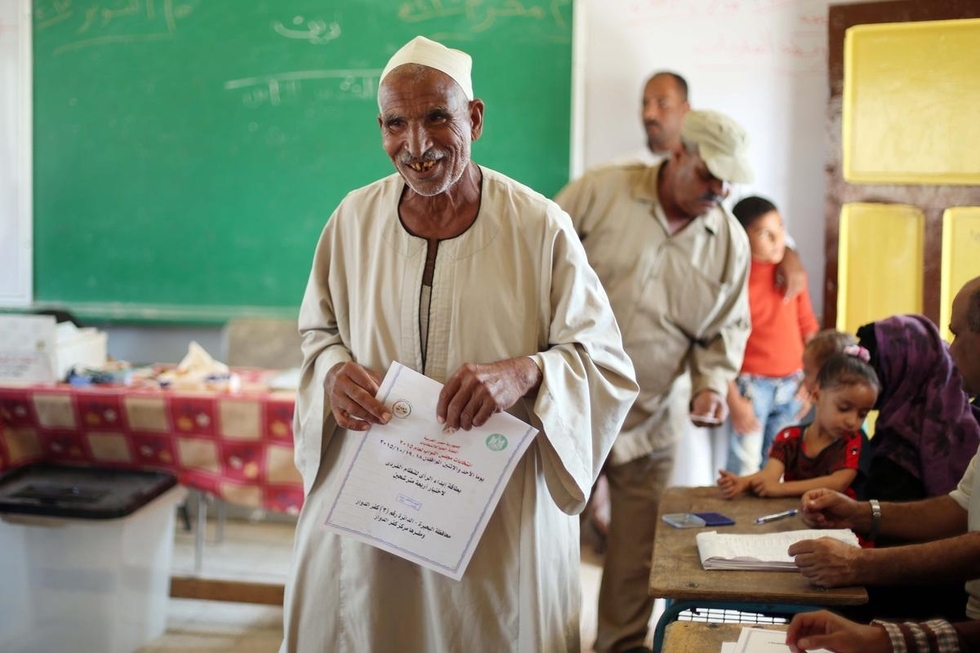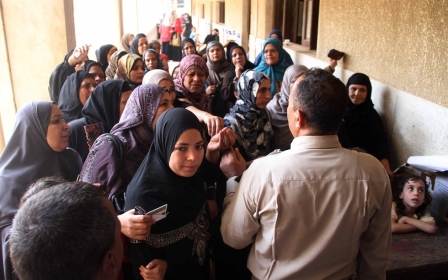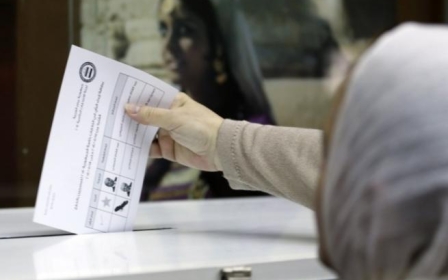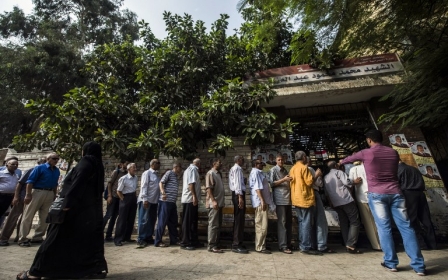Shocking low turnout for Egypt’s first round of parliamentary elections

Turnout at the end of the first day of Egyptian parliamentary elections on Saturday was a dismal 2.27 percent, according to the Supreme Elections Committee.
Streets were largely empty over the weekend, which marked the first phase of parliamentary elections. The second phase is expected to take place towards the end of November and finish on 2 December.
Reuters reported that the turnout for the weekend amassed to only 10 percent.
Egypt’s parliament was dissolved following the overthrow of former president Hosni Mubarak during the 2011 mass protests that gripped the country. With the election of Muslim Brotherhood leader Mohamed Morsi as president in 2012, parliamentary elections, which enjoyed a large turnout, were dominated by the MB’s Freedom and Justice party.
However, a popularly backed military coup removed Morsi from power in 2013. The current president, Abdel Fattah al-Sisi, was elected in 2014 in a landslide victory.
In a televised appearance over the weekend, Sisi urged Egyptian citizens to take to the polling stations and vote.
“I am expecting Egyptian youth to be the driving force in this celebration of democracy,” he said. “Celebrate the choice of representatives and make the right choice.”
28 of the 596 member parliament will be appointed by the president, while 448 will be voted in as independents.
The remaining 120 are running on party lists, with the main coalition being the pro-Sisi For the Love of Egypt, which is comprised of prominent businessmen as well as former members of Mubarak’s National Democratic party.
Lamis al-Hadidi, a TV anchor known for her fierce support of Egypt’s military and detestation of the Muslim Brotherhood, expressed her bewilderment at the low turnout and blamed the parliamentary candidates for not canvassing enough among their own constituencies.
“The candidates should have taken to the streets in their own constituencies in a more effective manner to inform the electorate of the importance of taking part,” Hadidi said on her programme. “Yet this has not happened, and they lose and we lose with them.”
“The political administration should observe caution…a danger bell is ringing,” she added.
Another pro-government TV anchor, Yousef al-Husseini, described the election scene as “miserable”.
“We should be realistic and admit that the scene is miserable,” he said. “Most of the polling stations are completely empty.”
Pundits pointed out that this was an unprecedented situation not seen even during the era of Mubarak’s 30-year reign.
New MEE newsletter: Jerusalem Dispatch
Sign up to get the latest insights and analysis on Israel-Palestine, alongside Turkey Unpacked and other MEE newsletters
Middle East Eye delivers independent and unrivalled coverage and analysis of the Middle East, North Africa and beyond. To learn more about republishing this content and the associated fees, please fill out this form. More about MEE can be found here.




